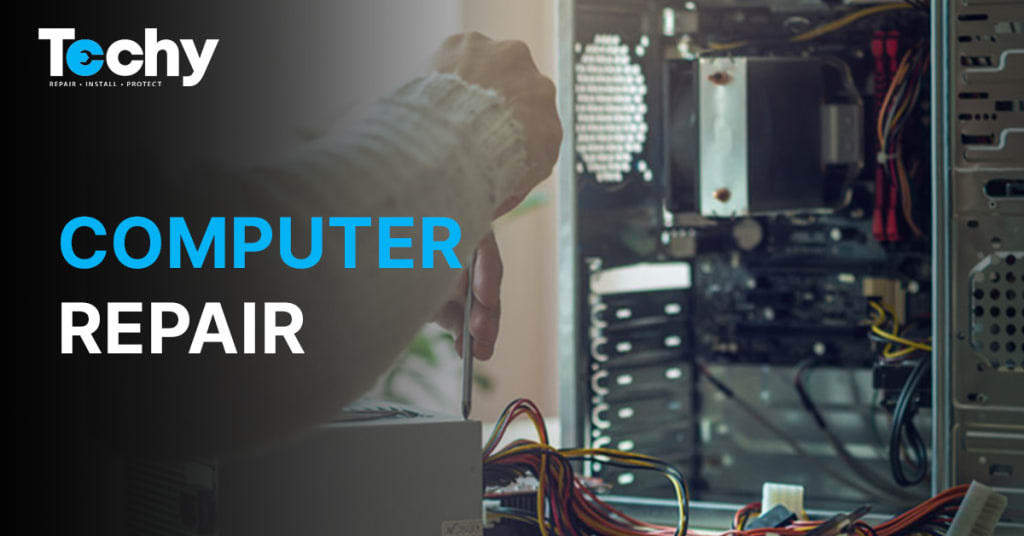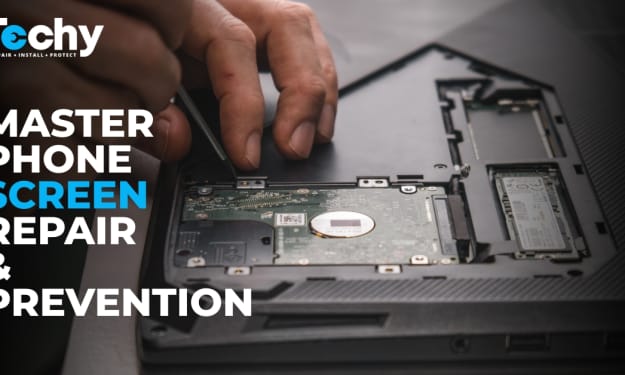DIY Computer Repair: Troubleshooting Tips for Common Issues
Computers are essential tools for work and personal use, but they can experience issues that can be frustrating and disruptive. By knowing how to troubleshoot common computer repair problems, you can save yourself time, money, and frustration.

Computers have become an important part of our daily lives, and when they malfunction, they can be frustrating and disruptive. While some computer repair problems require professional assistance, many common issues can be resolved with a bit of troubleshooting and DIY repair. In this post, we'll explore some troubleshooting tips for common computer repair issues that you can try at home.
Slow Performance
One of the most common computer repair issues is slow performance. If your computer is taking more than usual to boot up or open applications, it may be time for a cleanup. Start by checking your available storage space - if you're running low, try deleting unnecessary files or moving them to an external drive. You can also clear your cache and temporary files by using a tool like Cleaner. Additionally, make sure your computer's software is up to date and that you've installed any available updates. Finally, consider upgrading your computer's RAM if it's an older model or if you're running memory-intensive applications.
Blue Screen of Death (BSOD)
The Blue Screen of Death (BSOD) is a notorious computer repair issue that can be caused by a range of problems, from hardware failures to software glitches. If you're experiencing a BSOD, try restarting your computer to see if the problem resolves itself. Suppose it doesn't; try running a virus scan using a reputable antivirus program like Avast or Norton. You can also try updating your computer's drivers, as outdated or corrupt drivers can cause BSODs. Finally, if the issue persists, consider consulting a professional for any kind of computer repair problems, and get in contact with Techy.
Malware and Virus Infections
Malware and virus infections can cause a range of issues on your computer, from slow performance to data theft. If you find your computer has been infected, start by running a virus scan using a reputable antivirus program like Avast or Norton. You can also try using a malware removal tool like Malwarebytes. Additionally, make sure your computer's software is up to date and that you've installed any available updates. Finally, be cautious when downloading and installing software from the internet, as this is a common way for malware to infect your computer.
Overheating
Overheating is another common computer repair issue that can lead to performance issues and even hardware damage. If your computer is overheating, try cleaning out any dust particales or debris that may have gathered in the vents or fans. You can also try using a cooling pad or raising your computer off the surface it's on to allow for better airflow. Additionally, make sure you're not using your computer on a spongy surface like a sofa or couch, as this can block airflow and cause overheating.
Cracked Screen
If you've accidentally dropped your laptop or monitor and cracked the screen, don't panic. While it's always best to have a professional repair your computer, there are a few things you can do to troubleshoot the issue. First, try connecting your computer to an external display to see if the issue is with the screen or with the computer itself. If the external display works fine, the issue is likely with your computer's screen. You can also try replacing the screen yourself by purchasing a replacement screen online and following a step-by-step guide. However, this should only be attempted by those with experience in electronics repair.
In conclusion, computers are essential tools for work and personal use, but they can experience issues that can be frustrating and disruptive. By knowing how to troubleshoot common computer repair problems, you can save yourself time, money, and frustration. Whether you're dealing with slow performance, overheating, or malware infections, there are steps you can take to resolve the issue. If you're ever unsure about how to proceed, it's always best to consult a professional. If you are seeking for a good computer repair shop, look no further than Techy.





Comments
There are no comments for this story
Be the first to respond and start the conversation.